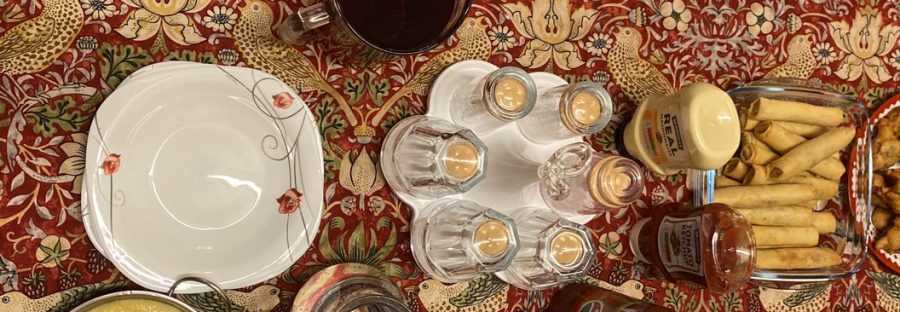Ramadan In Lockdown: what it means to Muslims
- The month of Ramadan is considered the holiest of months in the Islamic calendar
- Millions of Muslims around the world began observing Ramadan last week under very different circumstances from previous years
- Our NQ reporter starts her series with a beginners' guide to Ramadan
Before reporting on personal experiences of finding my faith in Allah again and how prayer has helped guard my heart in these tough times, it is useful to clear up misunderstandings surrounding this important month in the Islamic calendar.
As the second largest religious following in the world, Muslims believe in the five core fundamentals of the religion of Islam. These are:
1. Profession of Faith (Shahada):
The professing of the belief that “there is no god but Allah, and Muhammad (PBUH) is the Messenger of God” is central to Islam and, recited in Arabic, one becomes a Muslim by reciting the phrase with conviction.

2. Prayer (Salat):
Muslims pray facing Mecca five times a day – at dawn, noon, mid-afternoon, sunset and after dark. Praying includes Sura (a recitation of the opening chapter of the holy Quran) and is performed on a small mat made specifically for this purpose. Muslims pray individually or in mosques together, where a leader in prayer (an Imam) guides the congregation in collective worship.
Men gather in the mosque for noonday prayers on a Friday, known as Jumma. Women are welcome to participate but not obliged in certain circumstances, such as pregnancy or menstruation.
After prayers, focus turns to sermons based on passages from the Quran, followed by personal prayers from the Imam for members of the congregation and a discussion of particular religious themes in relation to the world we live in.
3. Alms (Zakat):
In accordance with Islamic laws, Muslims must donate a fixed portion of their income to community members in need. Many wealthy Muslims choose to build mosques, drinking fountains, hospitals, and schools to fulfil their Zakat as a religious duty and to secure blessings associated with charity, acts that are dominant within the religion.>
4. Fasting (Sawm):
This is the one pillar central to the month of Ramadan. During the daylight hours of the ninth month in the Islamic calendar (which is 10 days shorter than the Western calendar) all healthy and able adult Muslims are required to abstain from food and drink (yes, even water and no, we do not starve ourselves for the month and it is not the same as intermittent fasting but similar).
Through this temporary scarcity, they renew their gratitude of everything God has granted to them in their lives – including the holy Quran, which was first revealed during this month. During Ramadan, they share the hunger and thirst of the poor as a reminder of religious duty to the less fortunate in a humble show of solidarity.

Adli Wahid / CC BY-SA
5. Pilgrimage (Hajj):
Every Muslim whose health and finances permit them to do so must take at least one visit in their lifetime to the holy city Mecca in present-day Saudi Arabia. A cubical structure called the Ka’ba, covered in black embroidered hangings, is at the center of the Haram Masjid in Mecca. Muslims believe that this is the house Ibrahim (Abraham in English) built for Allah, and face in its direction (known as qibla) when they pray.
Since the time of the Prophet Muhammad (PBUH), believers from all over the world have gathered around the Ka’ba in Mecca on the eighth and twelfth days of the final month of the Islamic calendar, which is Dhu al Hijja. Unfortunately, the lockdown measures mean Hajj is not being observed, with the Ka’ba site being the emptiest it has ever been in decades.
During Ramadan, this is normally not the case at all, with many Muslims taking time off work and saving up for months to visit the religiously significant site. This is one of many changes to Ramadan during these tough times.
To find out more about my #Ramadan2020 #RamadanInLockdown experiences, please follow my personal Twitter account @siddradasghar and stay tuned for more Ramadan in Lockdown stories from the Muslim community @northernquota


